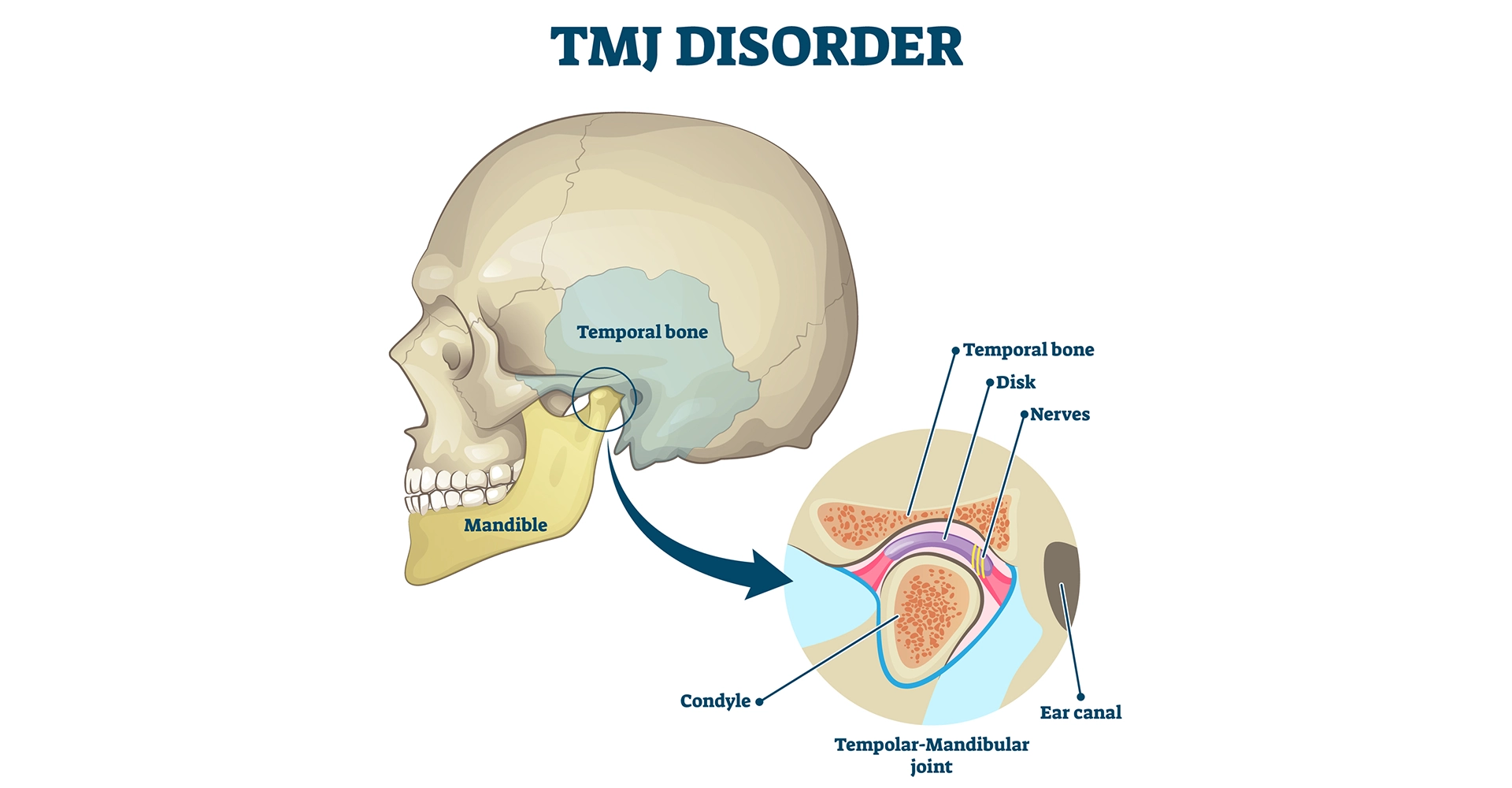The temporomandibular joint, often referred to as simply TMJ, is a sliding hinge joint that connects the jawbone to your skull. There is one on each side of the jaw. TMD, or temporomandibular joint disorder is a condition that causes pain in the joints and muscles that control movement of the jaw.
There are several factors that can cause or contribute to TMD including jaw injury, arthritis, or genetics. In some cases, people with TMD also have bruxism, which involves clenching and grinding the teeth. On the other hand, some people with bruxism never develop TMD.
Most of the time, the discomfort of TMD is temporary and is relieved with conservative measures such as medications (pain relievers, muscle relaxants, and antidepressants), mouthguards, physical therapy, and counseling. If these measures fail, surgical intervention may be considered.
The team at Legacy Dental in Salt Lake City has the experience and expertise to diagnose and treat TMD, as well as a variety of other oral issues. In this article, we’ll explain a few things that could cause TMD to worsen.
If you are experiencing the signs/symptoms of TMD- or if you have already been diagnosed, there are a few things you should avoid. These 9 things tend to cause the symptoms of TMJ to worsen over time:
Smoking and tobacco use are harmful to both your oral and your overall health. In fact, this is one of the worst habits you can engage in. After all, it is not only terrible for your teeth, but it increases your risk of oral cancer, as well as worsens conditions such as TMD.
Chewy/tough foods require a lot of chewing, which puts excessive pressure on the jaw joints. This causes an increase in pain and discomfort, which can limit jaw mobility. The good news is that you don’t have to give these foods up, simply take smaller bites and chew slowly.
You may not realize it, but your jaw function is closely related to your posture. The jaw operates best when your posture is upright, and the head is above the cervical spine. When you slouch, it changes how the jaw opens/closes.
One of the conservative treatments for TMJ is physical therapy. During this treatment, the therapist may work with you to improve your posture. This is often done by strengthening your back/shoulder muscles and reminding you to sit up tall/straight.
Bruxism is a condition characterized by clenching or grinding teeth together. This can occur throughout the day or at night while sleeping. If you have TMD, this can be a serious issue because it puts stress on your jaw muscles.
In many cases, bruxism is attributed to stress- therefore, finding ways to manage your stress may help provide some relief. In addition, your dentist may recommend that you wear a mouthguard while sleeping to prevent clenching and grinding throughout the night.
Many people rest their chin in their hands when sitting up watching tv, browsing social media, and more. While comfortable, this position has a detrimental impact on your jaw because it puts pressure on the TMJ, causing the disc to slip out of place. By breaking this habit, your joint has the opportunity to heal in the appropriate position.
Many people do things with their jaw that do not involve food. These actions may be done out of habit or they may be done unconsciously. These include chewing on pens and other non-food items, biting fingernails, and more. Children often suck on their thumbs or other fingers. These actions can put stress on the TMJ, causing symptoms to flare or worsen- and can slow down healing.
You may not realize it, but if you’re like most people, you only chew on one side of your mouth. This puts stress on one side of your TMJ and the surrounding muscles, which leads to pain and joint dysfunction.
When you are eating, try to pay attention to how you are chewing and make sure that you are using both sides. If you have tooth pain or another dental issue on one side that causes problems when you chew on it, see your dentist for treatment.
When you ignore any issue, it will worsen. Therefore, if you want your TMD to resolve, it’s best to seek treatment. First of all, it’s important to get a diagnosis so that you can be sure it is TMD that is causing your symptoms and not something more serious. Once you have a diagnosis, you and your dentist can work together to create a treatment plan. The first steps will be the most conservative treatment- rest, medications, counseling, and others. If these do not work, surgery may be discussed.
The signs and symptoms of TMD include:
- Pain/tenderness in the jaw or the joints/muscles of the jaw
- Difficulty chewing
- Locking/popping of the TMJ
- Facial and/or ear pain
If you are experiencing any of these, schedule your evaluation with the team at Legacy Dental in Salt Lake City. We have the experience and expertise to diagnose and treat TMD.
We are located at 1345 East 3900 South, Suite 116 in Salt Lake City. You can schedule your appointment by calling the office at (801) 278-4223 or by visiting the website. Our office hours are Monday through Thursday from 8:00 AM to 8:00 PM, Friday from 8:00 AM to 5:00 PM, and Saturday from 8:00 AM to 2:00 PM. Our extended and weekend hours allow us to be available for patients who are unable to take time off work.








